Everyone wants to get into the act - with software in place, that may be doable.
Today, XML is a check mark item for EAI hopefuls; it is also increasingly key to next- generation executive strategies.
Application service providers aim to offload IT functions from businesses of all sizes; some question whether organizations will turn sensitive data over to third parties.
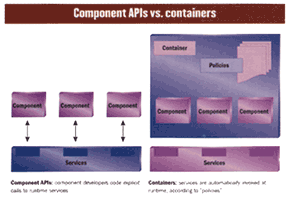
The CORBA Component Model is joining EJB and COM+ in an arena where paper specifications still largely rule.
Assorted IT shops have used Visual Basic for e-commerce work. While still in transition, the tool may have met the Web challenge more effectively than some erstwhile competitors.
Organizations no longer try to implement the full Capability Maturity Model; now, it is OK to use the pieces that fit best.

CommerceOne and GM go to virtual market, and XML gets the stress test.

In the wake of the Allaire Developer Conference, young Jeremy Allaire spoke to ADT Managing Editor.
A successful automated software quality process must occur throughout the development life cycle.

Its acquisition strategy succeeds where many others have failed; expect a new need for process in IT development units to keep it going through bad times.

Program corpus analysis is important in the optimization of runtime systems. Conventional linguistic analysis is static in nature and cannot reflect dynamic behaviors revealed by versatile object-oriented programming languages. The authors propose a pattern-based runtime profiler in Part 1 of this article.
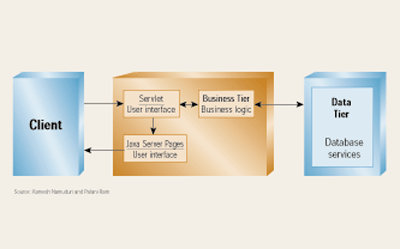
When the architecture is designed from the get-go with future growth in mind, applications developed early in a dot.com's life may be both reusable and scalable.
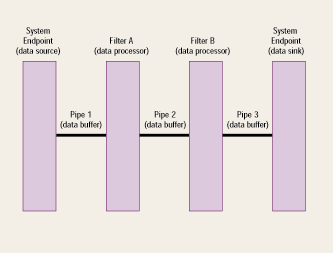
Pattern-Oriented Software Architecture offers developers the means to consult with the successful architects who came before them, and whose best practices can point to solutions that have previously been applied successfully.
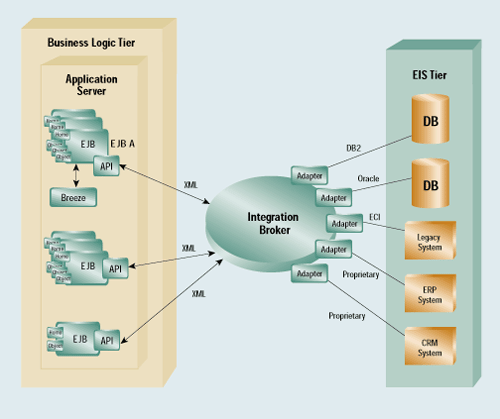
As corporate IT's integration activities continue to accelerate and consume an increasingly large piece of the budgetary pie, EJBs can offer a more rapid component-based integration solution for the J2EE environment.
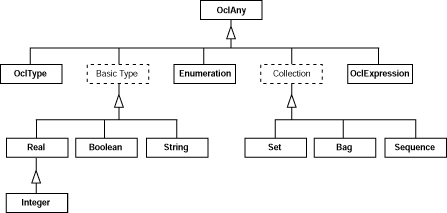
A trustworthy, reusable component will clearly advertise the set of services it provides in its interface. More information can be gained about how to use a service by examining an operation's signature and accompanying comments. However, is this all the information necessary to fully understand how to use a component? For example, rummaging around in the implementation to discover whether or not a Video Rental Abstract Data Type (ADT) allows customers to rent more than 10 videos defeats the purpose of an interface. Design by Contract (DBC) promotes techniques for strengthening the semantics of classes and their properties right from their inception.

In our seventh annual Innovator Awards issue, we profile the winning entries and honorable mentions in the following five categories:<BR>
<UL>
<LI>Application Engineering</LI>
<LI>Component-based Development</LI>
<LI>E-business Application Development</LI>
<LI>Middleware/Application Integration</LI>
<LI>Data Warehousing</LI>
</UL>
When it comes to new tools for data warehousing, the dynamism of Web commerce has become as much a problem as a solution. Here's how to succeed in the quest to unlock the value hidden deep inside this new clickstream of data.
Embedded systems have proliferated so much that embedded microprocessors now account for 94% of the world microprocessor market—with PCs representing only 6% of that market.
Without some sort of configuration management tool in place, companies may be skating on thin ice.
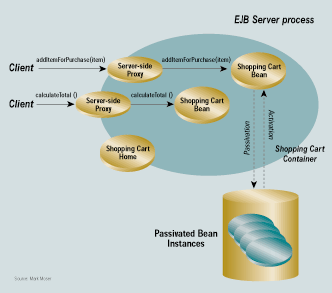
Container-managed components have risen from the primordial stew of distributed objects to spawn the next evolution in the enterprise software technology chain, Enterprise JavaBeans.